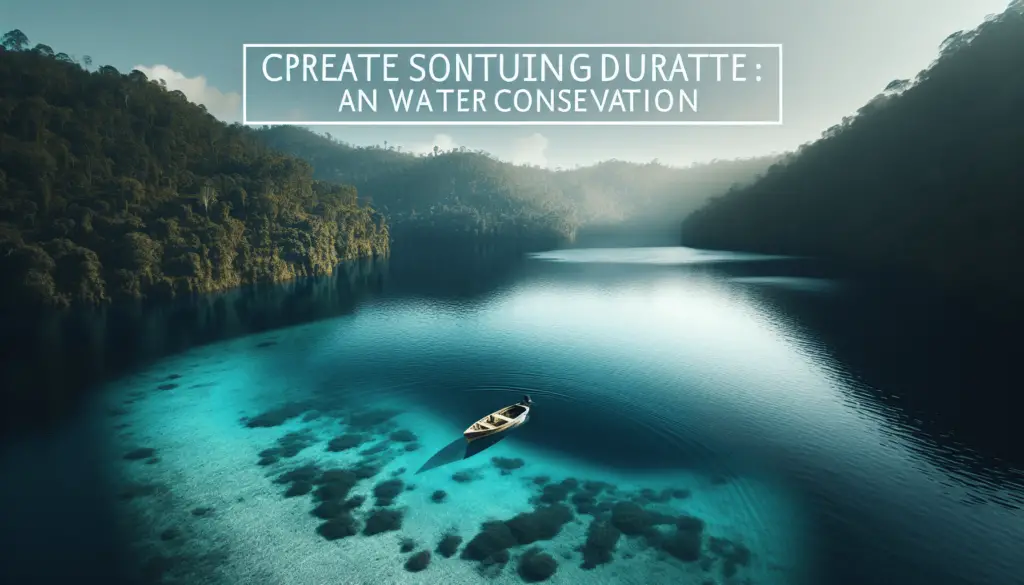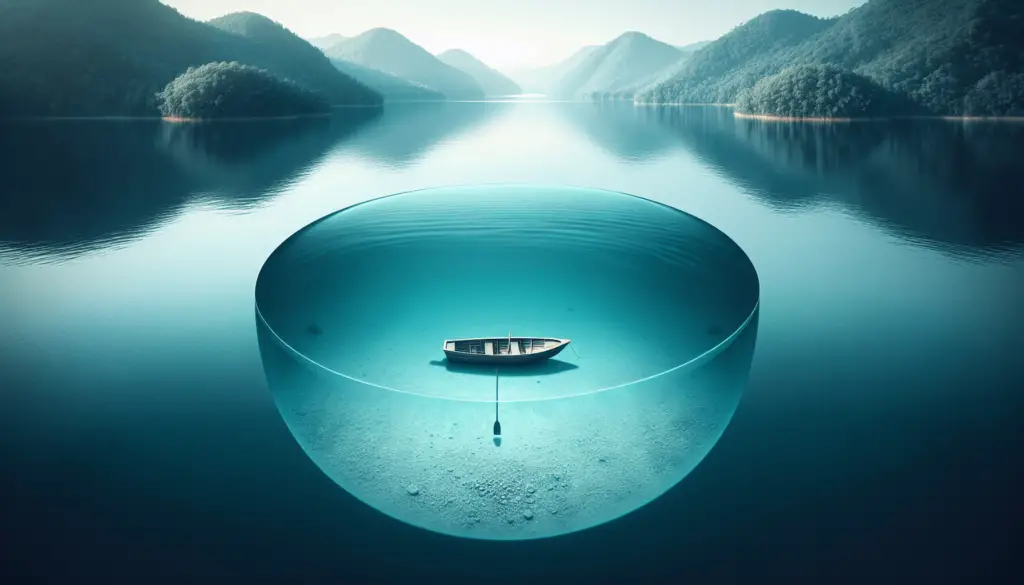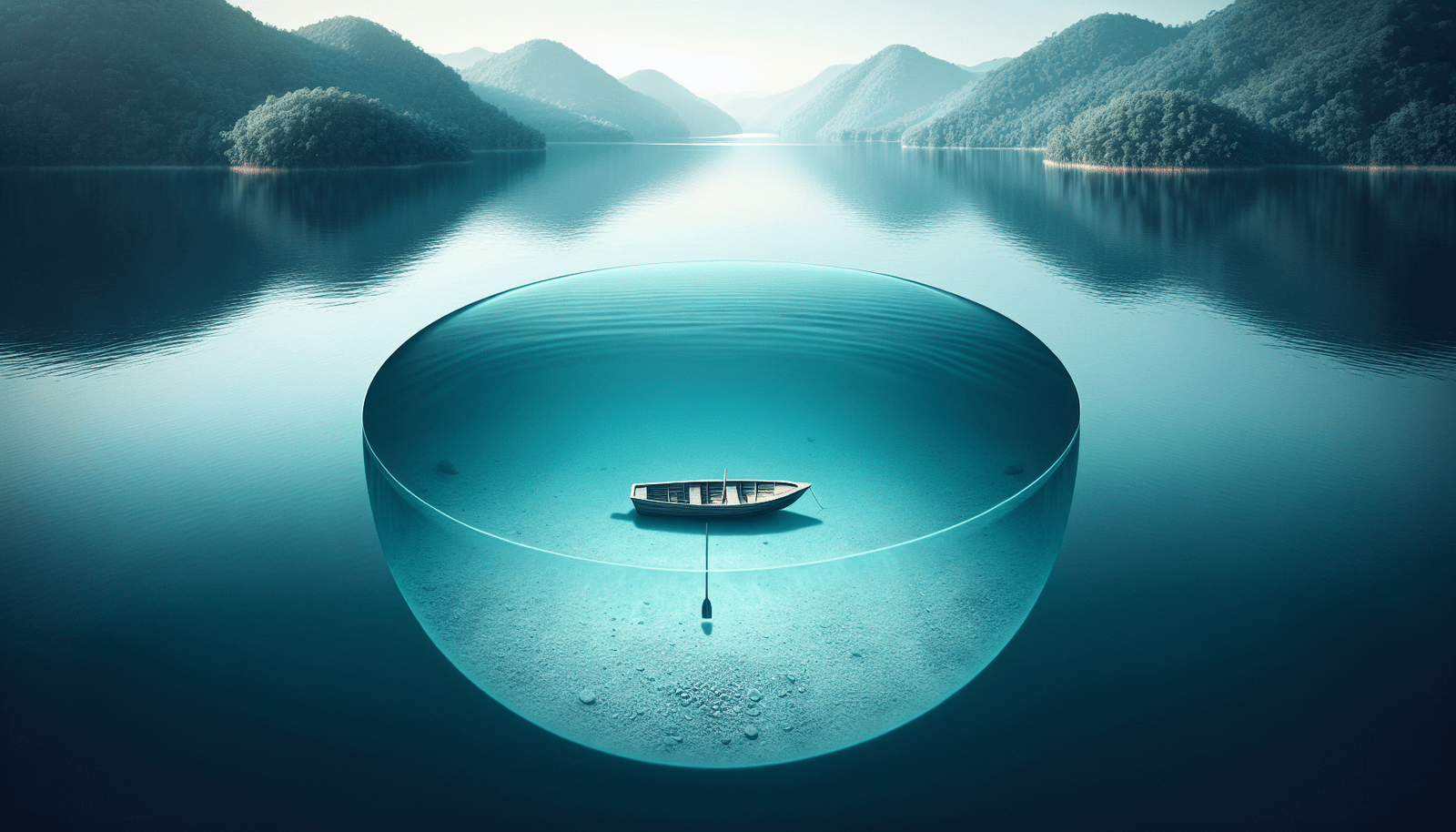Picture this: you’re out on your boat, feeling the cool breeze against your face while the tranquil water laps gently against the hull. This is your happy place, your sanctuary from all the stresses of the world. It’s not just about the joy of boating, but also an appreciation of the water itself. The article “The Connection Between Boating and Water Conservation” highlights the intertwined relationship between your favorite pastime and the paramount importance of preserving water ecosystems. It’s about understanding how your boating activities can both impact and contribute positively to water conservation efforts, ensuring the blue planet remains blue for future generations of boaters to enjoy.
Understanding the importance of water conservation
Understanding the importance of water conservation is critical for the health of our planet and for our survival. Water is a finite resource that needs to be managed wisely. With climate change, population growth, and industrialization, water scarcity is becoming a real challenge.
Global significance of water conservation
Globally, water conservation is of great significance. Many regions worldwide are facing water stress due to erratic weather patterns, pollution and overexploitation of water resources. Hence, conserving water, maintaining its quality, and managing its distribution has become a priority for all nations.
Impact on flora and fauna
Water is essential for the survival and growth of all flora and fauna. It is a critical component of their habitats, necessary for various biological processes. Thus, the conservation of water indirectly supports biodiversity, protecting everything from the smallest microorganisms to the biggest mammals.
Affect on various human activities
Water affects various human activities as well. From agriculture to industry, from power generation to household chores, every aspect of our lives depends on water. A deficiency or excess of it can hugely impact our lifestyle, economy and health.
Defining boating: a recreational activity
Boating, a popular recreational activity, often depends on the availability and quality of water resources. From rowing on a quiet lake to sailing on the vast ocean, boating can define as any activity that involves moving across water in a vessel.
Different types of boating activities
There are numerous types of boating activities available to enthusiasts. They can range from motor-powered boating, sailing, fishing, water skiing, to even competitive rowing or canoeing. Each activity offers a unique way to engage with the water and the surrounding environment.
Boating as a touristic attraction
Boating is also often a major touristic attraction. From gondola rides in Venice to river cruises on the Nile, boating offers tourists a new perspective to view landscapes and landmarks. It’s not only an enjoyable activity but also an essential part of many local economies.
Popularity of boating amongst leisure activities
Among leisure activities, boating is incredibly popular. It allows people to escape their daily routines and enjoy the serenity of being on water. It’s also a way to bond with friends and family, while enjoying the outdoors and engaging in physical activity.

The dependency of boating on water resources
Boating is heavily dependent on water – and not just any water, but water that’s clean and healthy.
Physical requirements for boating
The physical requirements for boating depend on the type and size of the boat and the nature of the activity. These can include the depth and width of the water body, the flow of the water, and the absence of obstructions or dangers like rocks, sandbars, and other potential hazards.
Importance of clean and healthy water bodies
clean and healthy water bodies are key to the sustainability of boating activities. Polluted water or the presence of invasive species can diminish the enjoyment and safety of boating. Also, degradation of water bodies can affect their capacity to support boating and other recreational activities.
Role of water in maintaining boat functionality
Water is also crucial to maintain the functionality of the boat. Whether it’s for cooling the engine in a motorboat, or giving buoyancy to a sailboat or paddleboat, good quality water is vital.
Boating-related water pollution
Sadly, boating can also contribute to water pollution, impacting the quality of water bodies and the ecosystems they support.
Different types of waste produced by boats
Boats can produce various types of waste, from oil and fuel leaks to sewage dump. Add to this the trash generated onboard by boaters themselves, everything from food wrappers to plastic bottles, and you’ve got a significant contributor to pollution.
Impact of boat waste on water quality
The waste from boats can significantly impact water quality. Fuel and oil can contaminate the water, making it harmful for aquatic life. Sewage and trash can introduce harmful bacteria, while litter can clog water systems or be ingested by marine animals.
Effect of boating on aquatic ecosystems
The impact of boating can also extend to the broader aquatic ecosystems. Disturbing habitats, disrupting animal behaviours and introducing foreign substances all have an impact on ecosystem health.

Fuel and chemical impact on water from boats
Boats not only physically impact water bodies, but they also add harmful chemicals and fuels.
Types of fuels and oils used in boats
Boats can use a variety of fuels and oils, depending on the type of engine. These include gasoline, diesel, and engine lubricating oil. This makes them potential sources of toxic substances that are harmful to water bodies.
Hazards of fuel and oil spill in water bodies
Spills of fuel and oil can be particularly hazardous. They can suffocate fish, coat birds and mammals making them unable to fly or thermoregulate, and contaminate food sources for marine life.
Possible consequences on marine life and human health
These spills can have dire consequences. They can lead to mass deaths of marine creatures and disrupt the balance of marine ecosystems. And they are harmful to humans too, contaminating seafood and posing risks for people who come into physical contact with the contaminated water.
Boating and physical disturbance of water bodies
Boating can also physically disturb water bodies, impacting their natural characteristics and the creatures that inhabit them.
Potential physical alterations to water bodies due to boating
Boats, especially motorized ones, can stir up sediment from the bottom of water bodies, making the water murky and potentially damaging conditions for aquatic plants and animals. They can also create waves that erode banks and shorelines.
Effects on the habitat and life cycle of aquatic creatures
These physical disturbances can upset the habitat and life cycle of aquatic creatures. Erosion can destroy breeding grounds, while increased turbidity can restrict light penetration, affecting photosynthesis of aquatic plants.
Impact on water clarity and temperature
Boating can also impact water clarity and temperature. Increased turbidity can reduce light penetration and raise water temperatures, which can alter the conditions necessary for survival of certain aquatic creatures.
Water conservation efforts in boating
Recognizing the impacts of boating on water conservation, various efforts are underway to make boating more sustainable.
Promotion of eco-friendly boating practices
Eco-friendly boating practices are being promoted to minimize environmental impact. These include using less harmful products, proper disposal of waste, and maintaining boats to prevent oil and fuel leaks.
Adoption of cleaner fuels and efficient engines
The boating industry is also exploring cleaner fuels and more efficient engines to reduce the environmental footprints of boats. Hybrid and electric boats, for example, are emerging as alternatives to traditional gas-powered boats.
Waste management systems in place for boating
Effective waste management systems are essential to prevent littering and contamination from boat waste. Many marinas now have facilities for proper disposal of boat waste, and there are calls for boaters to pack out their waste.
Policy making and legislation
Policy making and legislation play a key role in ensuring that boating is carried out in a manner that conserves water resources.
Boating regulation for preserving water bodies
Regulations are in place in many jurisdictions to guide boating activities. These can cover speed limits to minimize erosion and sediment disruption, mobile pump-out services, and no-discharge zones to keep water bodies clean.
Legislation enforcing accountability and responsibility
Legislation is also in place to hold boaters accountable for their actions. This can include fines for littering, illicit sewage dumping or spills, and legal requirements for certain equipment like pollution control devices and waste containment systems.
Laws to put limits on harmful boating practices
Further more, laws have been implemented to limit harmful boating practices. These include restrictions on the use of specific types of fuels or chemicals, and bans on activities that disrupt sensitive habitats or wildlife.
Educational efforts on boating and conservation
Education is paramount to bridging the gap between boating and water conservation. Many boaters might not even be aware of their impact on water resources.
Awareness programs about water conservation for boaters
Several organizations offer awareness programs on water conservation specifically for boaters. These programs give insights into the impacts of boating, and offer strategies for minimizing these impacts.
Organized cleanup events
Organized cleanup events are also effective ways to educate boaters about water conservation. These events highlight the problem of pollution and encourage participants to become part of the solution.
Programs to educate on the ecological impact of boating
Programs that focus on educating boaters about the ecological impacts of boating are also crucial. These programs detail the effects of boating on specific flora and fauna, and on the health of water bodies.
Fostering a culture of responsible boating
For true impact, a culture of responsible boating needs to be fostered among boaters.
Promoting personal responsibility for water conservation among boaters
The importance of personal responsibility needs to be emphasized. Every boater must understand that their decisions on and off the water can impact the health of water bodies, and are crucial for water conservation.
Initiatives to make boating a sustainable activity
Initiatives to make boating a more sustainable activity are gaining traction. This includes everything from the development of more efficient, less polluting boats, to advocating for personal behavior changes like using reusable water bottles instead of single-use plastic ones.
Impacts of responsible boating on the broader conservation issue
Responsible boating can have a broader positive impact on conservation issues. By reducing pollution and fostering a sense of stewardship, boating can contribute to healthier water bodies and ecosystems. More than just enjoying the water, responsible boaters are playing an active role in protecting our planet’s most vital resource.
water conservation and boating may seem like strange bedfellows on the surface, but they’re inexorably linked. By understanding how these two interact, we can take steps to ensure boating can continue to be enjoyed for generations to come, without causing irreparable harm to our precious water resources.

